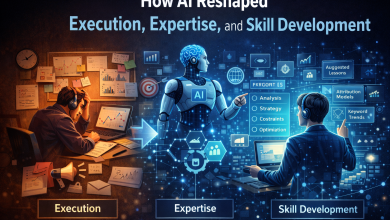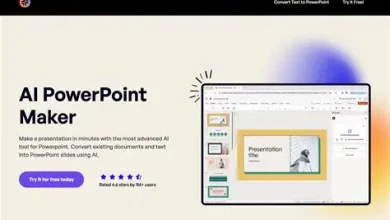
Contracts are the foundation of every business relationship—governing deals, defining obligations, and ensuring compliance.
Yet for decades, contract management was largely manual for legal teams reviewing, analyzing, and enforcing terms across thousands of agreements. Poor contract management can erode nearly 9% of a company’s bottom line, a loss that equates to $3.6B at the average Fortune 500 company. The rise of AI has already transformed the way businesses strategically manage contracts, empowering teams across legal, procurement, and finance to optimize business relationships, mitigate financial risk, and drive profitability.
Now, a new wave of AI innovation has emerged – one that goes beyond automation to fundamentally redefine how businesses operate autonomously. Acting as a force multiplier, agentic workflows scale enterprise resources, accelerate revenue capture, and enhance financial performance at an entirely new level. As businesses navigate increasingly complex markets, leveraging AI agents for contract intelligence presents a unique opportunity for competitive advantage. Let’s explore three use cases where an enterprise has the potential to drive growth with GenAI-powered agentic workflows.
Accelerate M&A Success
Mergers and acquisitions are high-stakes, complex transactions that demand speed, accuracy, and strategic decision-making. Traditional contract due diligence can be slow, requiring weeks or months of manual review that increases deal risk and delayed value realization.
By autonomously extracting key clauses, surfacing liabilities and aligning contract terms, agentic workflows can reduce diligence timelines from weeks to days, allowing businesses to move faster, mitigate risk, and maximize post-merger synergies. Furthermore, these workflows can integrate and apply relevant information from other systems, including public and licensed datasets, to more accurately determine the true risks involved.
Beyond due diligence, agentic workflows play a critical role in optimizing finance processes by identifying high-risk contract terms, flagging revenue opportunities, and recommending strategic adjustments based on past deal outcomes and current market conditions. These capabilities have the potential to enhance deal profitability and reduce post-merger financial liabilities.
AI is another partner Chie Financial Officerss should want in the boardroom, and giving AI access to the blueprints of a business – contracts – is an opportunity to hold more of a strategic advantage.
Strengthen Supply Chain Resilience
In today’s volatile economy, supply chain disruptions pose major financial risks, from revenue loss to increased operational costs. Businesses often struggle to track supplier performance, enforce contractual obligations, and forecast financial exposure buried deep within agreements.
Agentic workflows can transform supply chain management by autonomously monitoring supplier deliverables, risk triggers, and performance indicators to spur action in real time. By surfacing potential penalties, renegotiation opportunities, and compliance gaps early, AI agents help companies protect revenue streams and optimize procurement spend.
Additionally, AI agents can not only enhance contract negotiations by analyzing real-time market data to proactively identify cost-saving opportunities, but they can also conduct deep research across all contracts combined with operational data.
This comprehensive analysis provides a holistic risk profile, enabling businesses to identify vulnerabilities and suggest mitigation, such as contract amendments with key suppliers. For example, an AI agent could redline a supplier contract to suggest pricing adjustments based on commodity trends, ensuring businesses remain financially agile and competitive.
Enhance ESG Compliance from Obligation to Opportunity
With investors and stakeholders prioritizing ESG performance, businesses must demonstrate measurable progress on sustainability commitments—or risk financial penalties, reputational damage, and regulatory consequences.
70% of companies consider contract language a key tool in enforcing ESG standards, yet many lack visibility into these commitments. AI agents can autonomously extract, audit, and implement ESG clauses across thousands of contracts, ensuring compliance with evolving regulations such as the CSRD and SEC climate disclosures.
Beyond compliance, AI-driven workflows proactively recommend and action contract amendments to align with sustainability goals and investor expectations, turning ESG from a regulatory obligation into a financial advantage.
Companies that integrate AI into ESG governance gain faster compliance reporting, reduce regulatory risk, and stronger stakeholder trust—ultimately driving long-term financial value.
An Agent-Enabled Future
The integration of AI agents and agentic workflows marks a fundamental shift in how businesses operate. Legal, procurement, and finance teams can now deploy AI agents that autonomously analyze, recommend, and execute on business relationships – all while ensuring alignment with business strategy and financial goals.
The impact is clear: AI agents and agentic workflows have the potential to accelerate M&A execution by reducing due diligence timelines and increasing deal value, strengthen supply chain resilience by minimizing risk exposure and optimizing costs, and ensure seamless ESG compliance by maintaining regulatory adherence while enhancing investor confidence.
Most importantly, agentic workflows free business teams from time-consuming manual tasks, allowing them to focus on high-value strategic work that directly impacts financial performance and growth. As AI continues to evolve, businesses that embrace AI-driven contracting will move beyond risk mitigation to become proactive enablers of financial success, ensuring that contracts—the backbone of commerce—are not just managed but optimized to maximize profitability and competitive advantage.





